From bots to your brain: Facebook's vision to connect us comes into focus
Augmented reality, artificial intelligence and a few moonshots
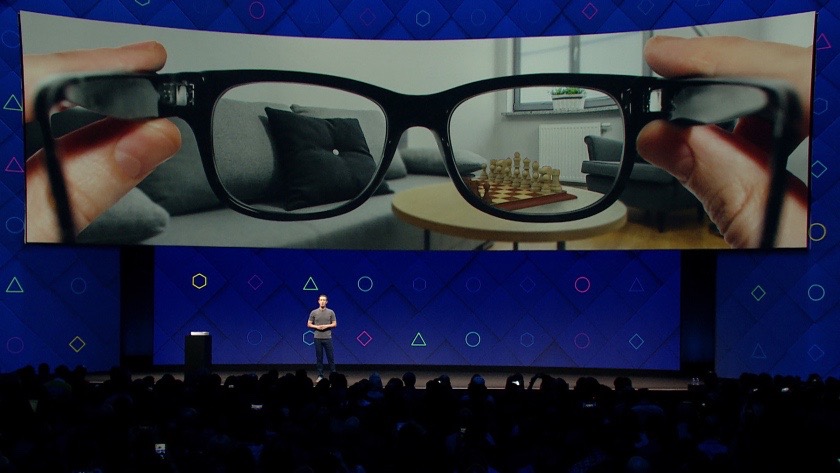
Facebook is now so much more than a social network, but of course, you already knew that.
At this week's F8 2017 developer conference, the company that has its fingers in seemingly everything – from virtual reality to internet drones – brought its vision of how it plans to connect us all into focus, though we won't see the fruits of this labor for several more years.
With few true products unveiled, Facebook spent much of the past two days hammering home its work in augmented and virtual reality, artificial intelligence and connectivity, topics it's discussed before but never quite with this much purpose. Plus, we got to see the beginnings of Facebook's own moonshot projects, courtesy of a former Googler.
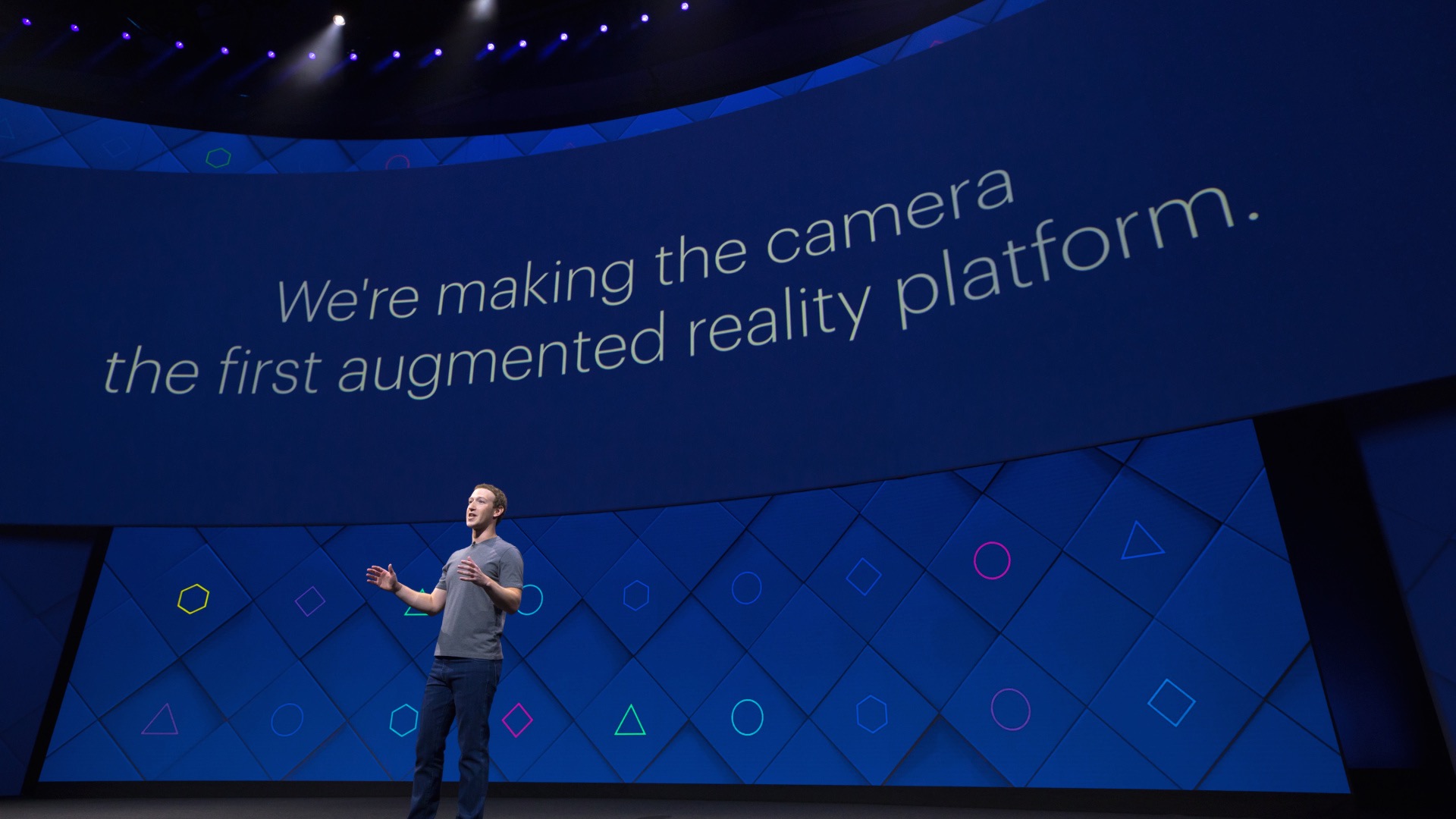
One major area Facebook is now focused on is turning the camera into a mainstream augmented reality platform. Right now, in practice, this means effects and animations to up the fun in your photos and videos, but it's also a necessary play for Facebook as it looks to stay competitive against Snapchat.
It also lets the company lay vital groundwork in the fields of object recognition, location sensing and effects, which could be applied across products and in ways much more useful than putting a puppy mask over your face.
CEO Mark Zuckerberg said during his keynote address that while he used to view glasses as the future of AR, it's the camera he's now convinced will be the means through which we enhance the real world with digital objects, at least to start. Facebook plans to be a part of, if not the leader in, that evolution.
Smartening up
Artificial intelligence is another hugely important area for Facebook, not only as it looks to place the perfect effects over your photos and videos so you share them more frequently, but also as Facebook bolsters its various services, including Messenger with the M digital assistant.
Get daily insight, inspiration and deals in your inbox
Sign up for breaking news, reviews, opinion, top tech deals, and more.
The smarter its AI, the better its services meet user needs, and the more time we'll spend in the Facebook app ecosystem (which is what Facebook is really after). With 1.2 billion monthly users on Messenger, it benefits Facebook to make the platform as savvy as possible.
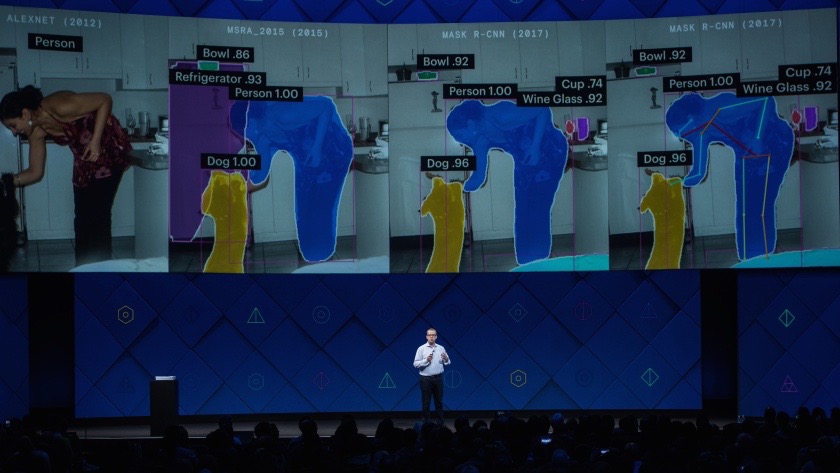
Bots got their own play at F8: turns out, customer connections with businesses are running healthy, with over two billion conversations taking place between these demographics in just one month, Facebook said.
Again, bots are a way to keep users inside the Facebook ecosystem, and Facebook's VP of messaging products David Marcus went so far as to say Messenger could one day become the Yellow Pages of messaging, serving as a one-stop shop for all your, well, shopping needs.
Augmented and virtual reality are key to Facebook's connected future as well. As noted by Facebook CTO Mike Schroepfer, Facebook is one of if not the only company investing in VR across price points and specs. It's a wise move as customers will come into VR at different entry points, and Facebook can be there to meet them at each one.

As for AR, Oculus Research's Chief Scientist Michael Abrash predicted that in 20-30 years, we won't be using smartphones any more, but rather wearing smart glasses that are comfortable, socially acceptable and enhance our hearing and vision.
It's almost certain Facebook will develop the very glasses he's talking about (even if Zuckerberg is focused on the camera right now), though we likely won't see a finished pair for at least another 10 years. Tapping into what it's learned from Oculus Rift, Samsung Gear VR and newly released applications like Facebook Spaces, the company is well-positioned to do well in AR development.
Mind and matter
As intriguing as Facebook's work in these areas and others is, by far the most impressive announcements to come out of Day 2, and arguably the entire conference, were made by Regina Dugan, head of Facebook's Building 8 team.
Formerly director of the US government's Defense Advanced Research Projects Agency who went on to lead Google's Advanced Technology and Projects division, Dugan now runs Facebook's product development branch, aka Building 8. It's here the most innovative, "category-defining products" are developed, and as Dugan described at F8, the team is focusing a good portion of its attention on our brains.
The aim is to create systems that allow us to remain engaged with the physical world while still utilizing technology, letting us staying connected through our devices without having to feel like we need to make a choice between the two.
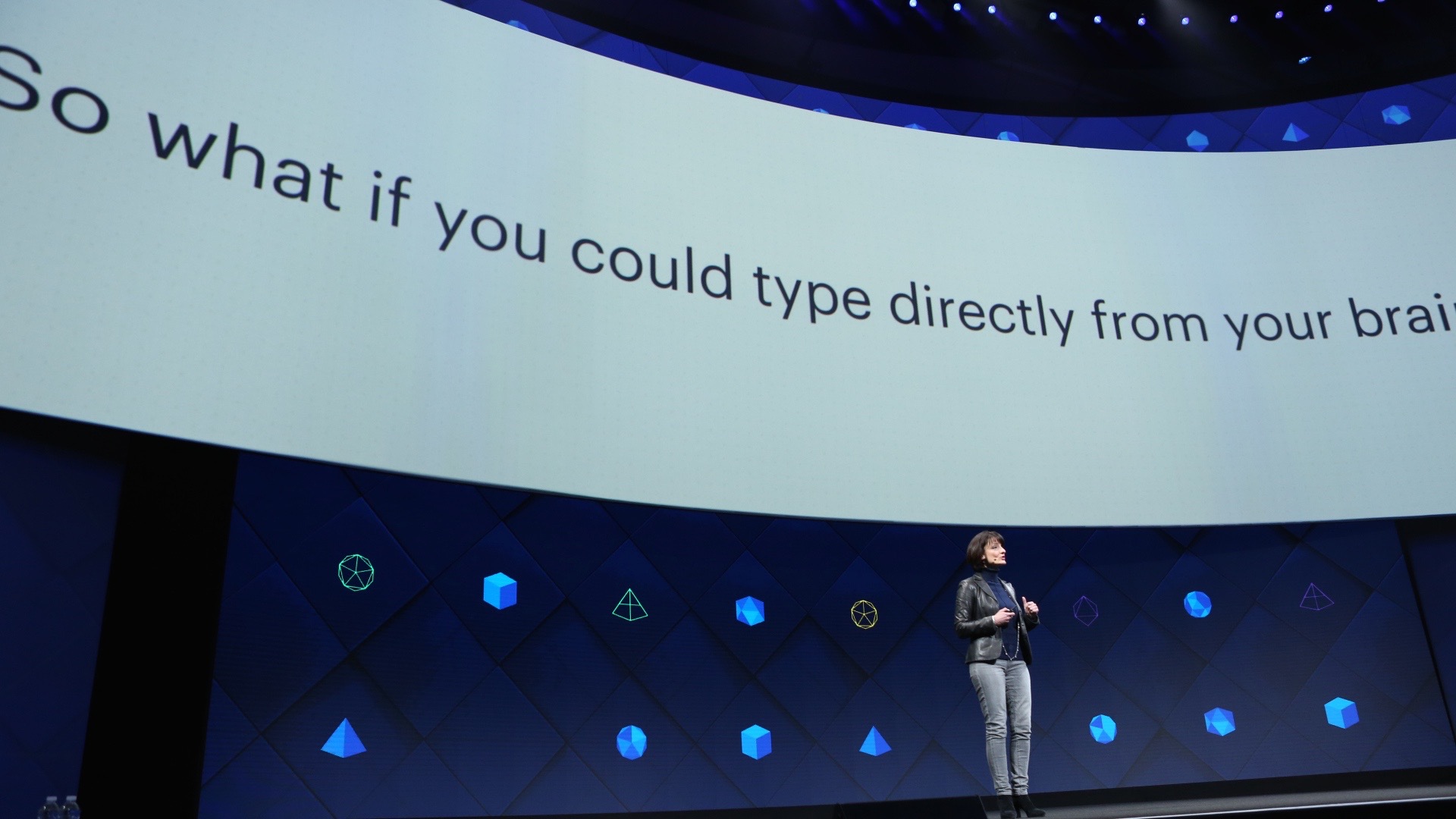
Dugan detailed two remarkable projects currently underway, ones that deal specifically with silent speech communications.
The first is a way of letting people type using only their brains. In a video shown on stage, a woman debilitated by ALS typed with only her thoughts. Dugan explained a pea-size electrode implant is in the part of the woman's brain that would normally control motor functions. The implant records neurons as she imagines moving the cursor, then a computer learns to move the cursor for her. With the system, she can type eight words per minute.
Eventually Building 8 and its partners hope to create a system that types 100 words per minute using non-invasive, wearable sensors, which would allow them to be produced and shipped quickly to reach the most people.
This isn't mind reading, Dugan explained, or at least not of every thought that courses through your cranium. Rather, Building 8's system will seed out the words people have decided to share, funnel those to the brain's speech center and translate those into typed words.
"A silent speech interface, one with all the speed and flexibility of voice, but with the privacy of typed text," Dugan said. "Better yet, with the ability to text a friend without taking out your phone or to send a quick email without missing the party. No more false choices."
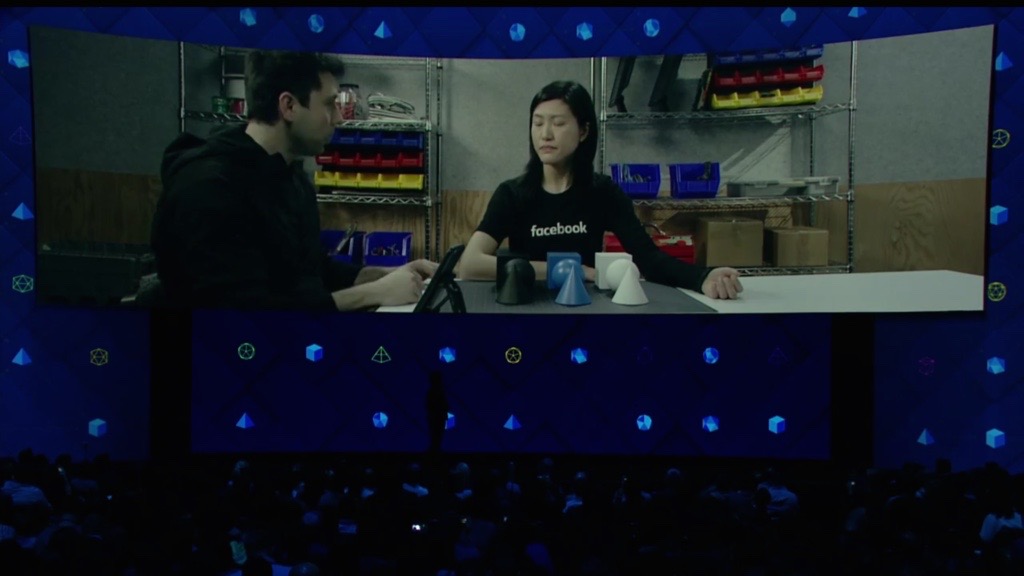
The second Building 8 project Dugan detailed is hearing through skin. Yes, you read that correctly: Facebook wants us to understand words through tactile input.
Dugan played a video in which a Facebook electrical engineer with a system of actuators on her arm could feel words in combinations of one, two and three through her skin. She has a tactile vocabulary of nine words, learned in an hour.
Dugan described the system as an artificial cochlea, or the part of the ear that lets us pick up sound vibrations and understand speech.
"If we put these two things together, they suggest that one day, not so far away, it may be possible for me to think in Mandarin, and for you to feel it instantly in Spanish," she said. "Imagine the power such a capability would give to the 780 million people around the world who cannot read or write, but who can surely think or feel."
Dugan's presentation was the highlight of the conference, and drives home that Facebook is much more than a social media service. The company's ambitions reach far beyond connecting us with posts and pictures, and into the very way we interact with one another.
Michelle was previously a news editor at TechRadar, leading consumer tech news and reviews. Michelle is now a Content Strategist at Facebook. A versatile, highly effective content writer and skilled editor with a keen eye for detail, Michelle is a collaborative problem solver and covered everything from smartwatches and microprocessors to VR and self-driving cars.
